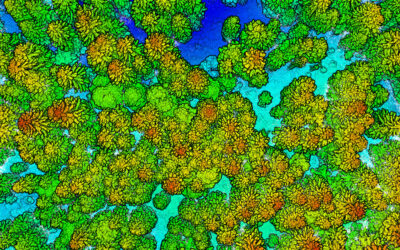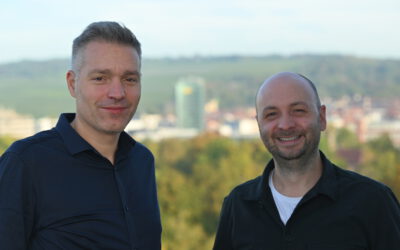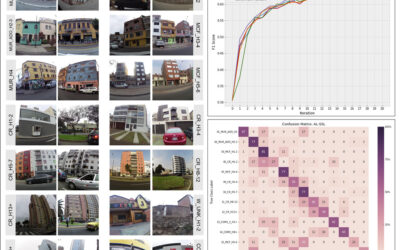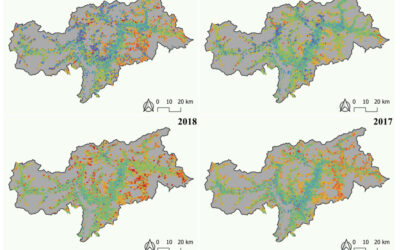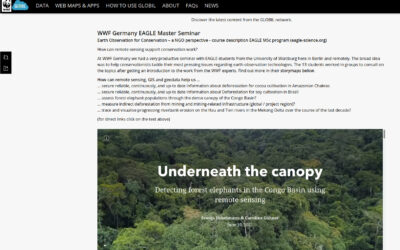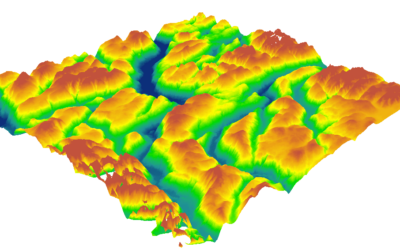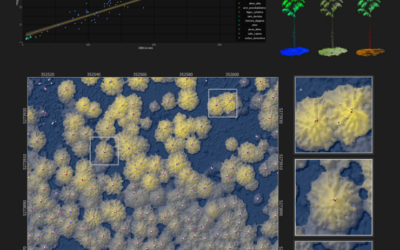Aim
The students will learn to design scientifically relevant presentations.
Presentations, approaches and layouts as well as programs will be discussed with regard to its scientific content and goal to ensure high quality presentations and dissemination of relevant information.
Content
Visual scientific presentation skills will be taught. Existing presentations will be discussed and evaluated with regard to visual appearance, scientific content and dissemination. Moreover design and appearance of presentations and poster will be discussed and guidelines provided. Individual training of presentations using a variety of programs will be part of it as well. Alternative presentation methods will be introduced (e.g. knitr, beamer).
Coding
Visual as well as coding approaches for presentations are covered
Software
Various software programs will be used, but mainly R with knitr, markdown, slidify etc. or Latex Beamer
Techniques
Different visualisation, oral presentation as well as preparation techniques will be introduced and practically applied.
Content
Theoretical and practical background of scientific presentations and their underlying assumptions and software are covered
General Course News and Updates
internship, innoLab and MSc idea presentations
On Tuesday 22nd of November at 12am we will have the following presentations: Dilara Kim: „Automated glacier snowline mapping from multi-sensor satellite observation“, InnoLab, EURAC Research, Supervisor: Dr. Martina Barandun Walid Ghariani: „PM2.5 Prediction Using...
New EAGLE Earth Observation professors
We are very happy to welcome two new professors within the EAGLE M.Sc. program! Prof. Dr. Hannes Taubenböck and Prof. Dr. Tobias Ullmann will strengthen the urban remote sensing and radar earth observation within the EAGLE program. Various new courses are already...
MSc defense by Larissa Gorzawski
On Wednesday 5th of October at 2pm Larissa will present her M.Sc. thesis "Deep transfer learning on street-level imagery for classification of seismic building types in Lima, Peru". From the abstract: "Comprehensive exposure models for seismic risk assessment require...
M.Sc. defense by Jakob Rieser
On Monday, 26th of September at 10am, Jakob will present his M.Sc. thesis „A Synergistic Use of Optical and SAR Remote Sensing Data for the Long-term Evolution of Biocrusts and their Activity Across Diverse Dryland Ecosystems”. from the abstract: "Biological soil...
MSc defense by Christopher Chan
Chris will present his M.Sc. thesis "Investigating the capability of UAV imagery in AI-assisted mapping of Refugee Camps in East Africa" on Friday 16th of September at 2pm. From his abstract: " Refugee camps and informal settlements provide accommodation to some of...
MSc defense by Annika Ludwig
Annika will present her M.Sc. thesis "Analysis of alpine grassland management dynamics based on webcam and optical remote sensing time series" on Friday 9th of September at 9am. From the abstract: "The aim of this study is to detect relationships between environmental...
EAGLE summer dialogue 2022
After two years we finally had our EAGLE summer dialogue again with many Earth Observation alumni, now working in various research organizations and companies. Great to talk to all our past and present students and also seeing all the students getting to know each...
WWF course on applied Earth Observation
Our EAGLE students joint a course offered by the earth observation unit at WWF and learned how to apply remote sensing within a conservation NGO. They learned a lot and their results are published as story maps on their webpage...
Inno lab and internship presentations
On Friday, 8th of July, at 9:30 we will have the following presentations: Jana Maier (InnoLab at DLR): Multitemporal SAR Analysis for Sentinel-1 metrics based Land Cover Classification in West Africa - InnoLab in Agroecosystems and Phenology at DLR. Nora Nieskens...
MSc defense by Antonio Castaneda
On Friday, 1st of July at 9am Antonio will present his M.Sc. thesis "Potential and limits of using UAS in forest monitoring". From the abstract: "The exponential development, usage, and application of uncrewed area systems (UAS) have given remote scientists a clear...

